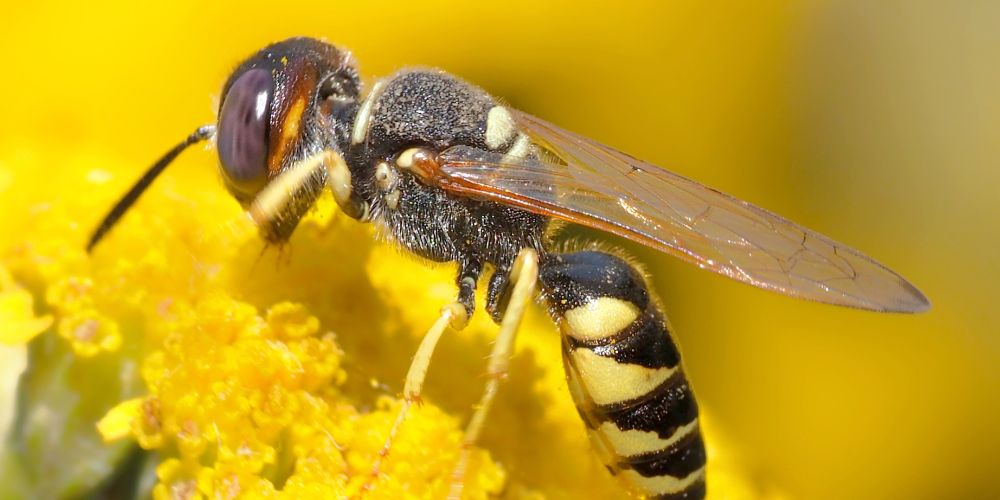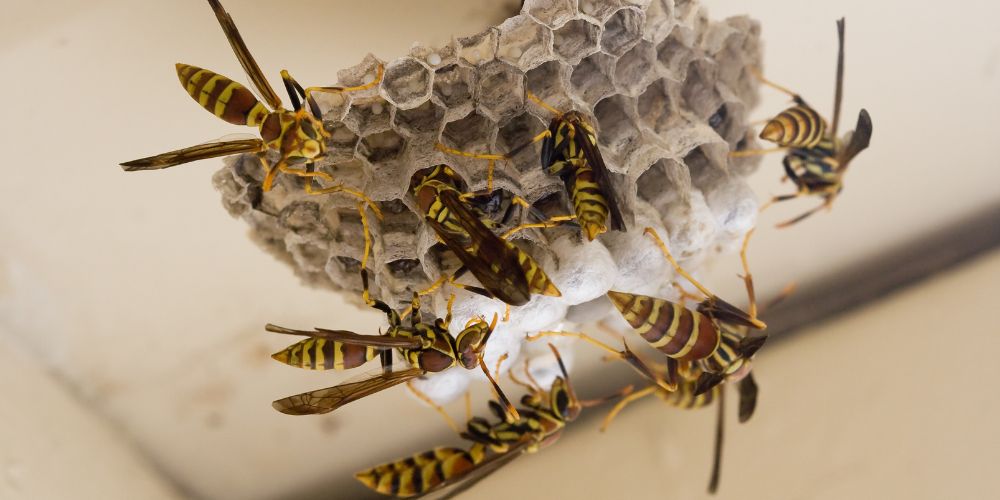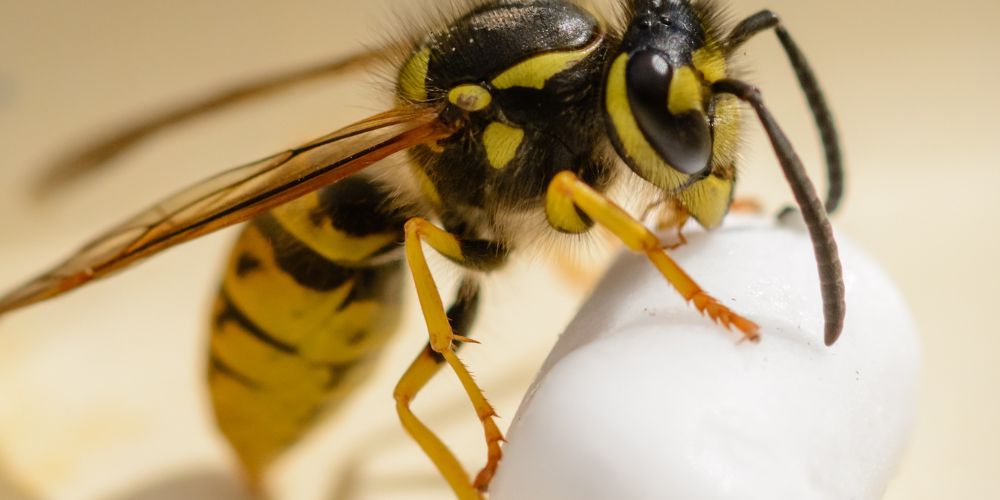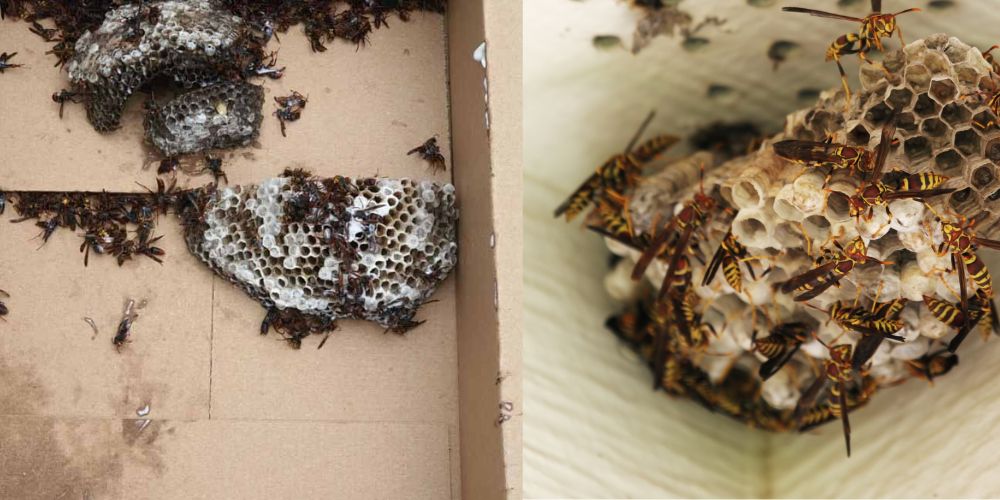Wasps are a nightmare. Bees are least likely to bother someone, while wasps are aggressive, protective of their territory, and a real pain. They hurt like you don’t want to get stung, and some are even lethal. We won’t let them spoil my or my workplace’s atmosphere, so We have had to find out how to keep them away for good. It’s all about making my space as unwelcoming as it can be.
Why Do Wasps Keep Coming Back?
Three primary factors attract wasps to your home or any building, making it a suitable nesting site. These are food, shelter and water. Without these, the wasps should not have a reason to stay around.
Food Sources

You should know that wasps are always on the lookout for food. Sweet and protein rich items are their particular attraction. Food if left out; sugary drinks, fruits or meats; will not take long for wasps to discover. Such things as trash cans, compost bins and even pet food bowls are also prime feeding spots in many cases.
Safe Nesting Areas
They make their nests in locations which are warm and where they are safe from their predators. Eaves, wall cavities and tree branches are some of their favorite spots. If there are gaps or cracks in your home’s structure, they may think this is an open invitation to move in.
Water Supply
Like any other living creature, wasps need water to survive. Birdbaths, leaky faucets, and even small puddles can become a water source that keeps them coming back.
Effective Ways to Keep Wasps Away

If you want to keep wasps from making your home their own, you need to make your property as unappealing to them as possible. Here’s how:
Seal Up Entry Points
Look for cracks, holes and gaps around your house. Window frames, vents, roof eaves and siding are some of the areas to watch for. It limits their access to potential nesting sites within your home or building since wasps will have a hard time finding suitable entry points to seal.
Manage Your Waste
A wasp will be attracted to garbage especially if it has been used to store food wastes. It is better to use a closed trash can and it is advisable to empty the trash now and then. If at all possible, do not place garbage bins near the doors and windows so that wasps do not come near.
Keep Outdoor Eating Areas Clean
For eating outside, if you love it, then after every meal, make sure to clean up. The first thing that comes to the wasps’ mind is crumbs, spills or food scraps. Cover your drinks, wipe down tables and store food in sealed containers.
Remove Standing Water
Avoid water accumulation of any kind near your house. Close up leaky outdoor faucets, don’t fill bird baths too often, and make sure that gutters and drains are clear of any blockages to stop water from gathering.
Trim Vegetation and Clear Debris
Wasps make their nests in overgrown shrubs, trees, or in wood or debris piles. Keep your yard in good shape, by cutting bushes and trees that are near your home and taking away any clutter that is not needed.
Read Also – Effective Methods For Bee and Wasp Removal
Natural Wasp Deterrents

If you prefer natural methods over chemical solutions, there are several ways to repel wasps without harming the environment.
Essential Oils
Certain scents are known to keep wasps away. Peppermint oil is particularly effective. Mix a few drops with water and spray it around entry points, patios, and garbage areas. Other oils, like eucalyptus, lemongrass, and citronella, can also help deter wasps.
Wasp-Repelling Plants
Planting natural repellents around your home can be an easy and effective way to keep wasps away. Some of the best wasp-repelling plants include:
- Mint
- Basil
- Marigolds
- Lemongrass
- Eucalyptus These plants emit scents that wasps dislike, making them less likely to stick around.
DIY Wasp Traps
We have learned that making wasp traps on your own is a good way of controlling their population. A very simple way is to cut the top of a plastic bottle, put it upside down and put a sweet bait of sugar water or fruit juice in it. Wasps are attracted to the inside, but once they are inside, they cannot find their way out. It is a very efficient and quite a simple way of eliminating them from my environment.
How to Deal With Existing Wasp Nests
If you already have a wasp nest near your home, handling it safely is crucial. Here’s what you need to know:
Small Nests Can Be Removed Early
If you encounter a nest at an early stage – this is usually in spring – you may well be able to do it on your own. In the evening, when wasps are not likely to be about, a wasp spray or soapy water solution should be applied. Whenever any of the stated methods are used, it is necessary to wear protective clothing and to stay as far as possible from the nest.
Large or Hidden Nests Require Professional Help
If the nest is large or hard to reach, don’t take any chances. Wasps are very defensive when their nest is threatened and several strings can be dangerous. Only professional pest control services have the right equipment and experience to safely dispose of the nest.
Keeping Wasps Out of Your Home
Despite your best efforts, wasps may still try to get inside your home. Here’s how you can prevent them from gaining access:
Install Screens and Seals
Not letting wasps fly into your house is possible with fine mesh screens on windows and doors. Strips and sweeps for doors also keep them from entering through tiny spaces.
Keep Doors and Windows Closed
It may seem obvious, but shutting doors and windows, particularly at the time wasps are most active can stop wasps from entering the house.
Use Decoys
Wasps are territorial and usually do not venture where a colony of the same species is present. If you want to deter wasps, you can try to fool them by hanging up a fake wasp nest, so that they will believe the spot is taken and they should look for some other place.
Long-Term Wasp Prevention
It is very important to watch out and make sure that wasps are not allowed to get close to the premises. The property should be checked on a regular basis for any space that could be used by wasps to build a nest and there should be no food or water for them. Also, avoiding the attraction of food and water will also assist in excluding wasps.
This is because wasps’ natural enemies are birds, dragonflies, and some other insects, and therefore, balancing the ecosystem may be on your side.
Conclusion
Wasps are relentless, but we refuse to let them take over my space. By removing what attracts them, using natural deterrents, and staying ahead of their nesting habits, We keep my home and workplace wasp-free. If they ever get out of control, we have no problem calling in experts to handle the job. A little effort goes a long way in keeping these pests away for good. Rope Access Australia provides professional wasp nest removal services to ensure your property stays safe and pest-free.




